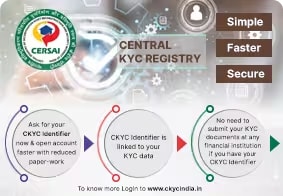Enjoy Zero Charges on All Commonly Used Savings Account Services
- About Us
- MD & CEO letter about the bank
- MD & CEO
- Our History
- Letter to Shareholders on the 1st Annual Report after Merger
- Letter to Shareholders on the 2nd Annual Report after Merger
- Letter to Shareholders on the 3rd Annual Report after Merger
- Letter to Shareholders on the 4th Annual Report after Merger
- Board of Directors
- Awards & Accolades
- News Room
- Investors
- Careers
- ESG
-
Login
Are you ready for an upgrade?
Login to the new experience with best features and services
- Accounts
-
Deposits
IDFC FIRST Bank Deposits
View all Deposits -
Loans
IDFC FIRST Bank Loans
View all Loans - Wealth & Insure
-
Payments
IDFC FIRST Bank Payments
View all Payments - Cards
- Rocket Current Account
-
Cash Management Services
IDFC FIRST Bank Cash Management Services
View all Cash Management Services - Supply Chain Finance
-
Corporate Lending
IDFC FIRST Bank Lending
View all -
Treasury
IDFC FIRST Bank Treasury
See more details - NBFC Financing
-
Login
Are you ready for an upgrade?
Login to the new experience with best features and services
-
Customer care hotlineCall 1800 10 888
- IDFC FIRST Bank Accounts
- Savings
Account - Corporate Salary
Account - Senior Citizens
Savings Account - First Power
Account - Current
Account - NRI Savings
Account - TASC Institutional
Account - Savings Account
Interest Calculator
- IDFC FIRST Bank Deposits
- Fixed
Deposit - Recurring
Deposit - NRI Fixed Deposit
- Safe Deposit Locker
- FD Calculator
- RD Calculator
- IDFC FIRST Bank Loans
- Personal Loan
- Consumer Durable
Loan - Home Loan
- Education Loan
- New Car Loan
- Pre-owned Car Loan
- Two Wheeler Loan
- Pre-owned Two
Wheeler Loan - Commercial Vehicle
Loan - Gold Loan
- Loan Against Property
- Easy Buy EMI card
- Personal Loan
EMI Calculator - Education Loan
EMI Calculator - Home Loan
EMI Calculator
- IDFC FIRST Bank Wealth & Insure
- FIRST Select
- FIRST Wealth
- FIRST Private
- Mutual Funds
- Sovereign Gold Bond
- Demat & Trading
Account - Term Insurance
- Life Insurance
- Health Insurance
- General Insurance
- IDFC FIRST Bank Payments
- FASTag
- Credit Card
Bill Payments - UPI
- Funds Transfer
- Retail Forex
- Pay Loan EMI
- IDFC FIRST Bank MSME Accounts
- Current Account
- Merchant Multiplier
Account - Startup Current
Account - Agri Multiplier
Account - TASC Institutional
Account - Dynamic Current
Account - Freedom World
Current Account - World business
Account
- IDFC FIRST Bank Business Loans
- Unsecured - Business Loan
- Unsecured - Professional Loan
- Secured - Loan Against Property
- Working Capital Loan
- Construction Equipment Loan
- IDFC FIRST Bank Business Solutions
- Payments
- Collections
- Tax Payments
- Doorstep Banking
- Point of Sale (POS)
- MD & CEO letter about the bank
- MD & CEO
- Our History
- Letter to Shareholders on the 1st Annual Report after Merger
- Letter to Shareholders on the 2nd Annual Report after Merger
- Letter to Shareholders on the 3rd Annual Report after Merger
- Letter to Shareholders on the 4th Annual Report after Merger
- Board of Directors
- Awards & Accolades
- News Room
-
As per amendment in the Income Tax Rules, PAN or Aadhaar are to be mandatorily quoted for cash deposit or withdrawal aggregating to Rupees twenty lakhs or more in a FY. Please update your PAN or Aadhaar. Kindly reach out to the Bank’s contact center on 1800 10 888 or visit the nearest IDFC FIRST Bank branch for further queries.
-
-
Finance
Term Insurance vs Life Insurance: Which one to choose?
Summary: There are certain differences between a Term Insurance and a Life Insurance product that involve their tenure, scope, and maturity benefits, etc. Read on to find which product could be the right choice for you.

When you want to be insured, you can choose either a Term Insurance or a Life Insurance product. However, although Term Insurance and Life Insurance are often mentioned under the same breath, they differ on certain aspects.
Term Insurance is a type of Life Insurance that provides only death cover for a specific tenure. On the other hand, life insurance can remain active for entire policyholder’s lifetime.
In the term plan vs Life Insurance comparison, the suitability of either would depend on your existing coverage and financial position. Let's examine the various features and details of each so that you can decide which is better: term or life insurance.
Extent of coverage
First, choosing between Term and Life Insurance would depend on your preferred coverage duration. If you want uninterrupted life coverage throughout your life, life coverage would be ideal. But if you find life coverage essential until retirement, Term Insurance will be better.
Purpose of insurance
The primary purpose of Term Insurance is pure risk coverage, whereas Life Insurance policies often offer maturity benefits. If you want a substantial death benefit on your policy and do not expect any return on maturity, Term Insurance is better. But if you want Life Insurance as a tool for saving, Life Insurance will ensure maturity and death benefits.
READ MORE
Cost of premium
Since term policies don't come with maturity benefits, they are comparatively less expensive. Within Life Insurance, an endowment policy without profit will have a lower premium than an endowment policy where profit is a part of the maturity sum assured. So, if your survivors are financially secure and you don't want to spend on higher premiums, you can go for Term Insurance.
Duration of the policy
Life policies are less flexible than term plans, so if you are unsure how long you will continue your life policy, you should go for a term plan. If you stop paying Term Insurance premiums, your life coverage ceases, and the insurer will not pay a death benefit. You can renew the term policy later and convert it into an endowment policy.
However, if you don't pay all the premiums in a life policy, you become ineligible for the maturity benefits. If you surrender the policy, you will receive a surrender value amount that is much less than the maturity benefits.
To sum it up
Additionally, as a part of your financial planning, you should check the tax deferred on Life Insurance benefits and the tax deductions available to you. Based on these parameters, you can decide whether Term Insurance or Life Insurance offers you the desired life coverage.
IDFC FIRST Bank has curated some of the best Term and Life Insurance plans available to you at reasonable premium amounts. Avail of one and secure your life and that of your loved ones today!
Disclaimer
The contents of this article/infographic/picture/video are meant solely for information purposes. The contents are generic in nature and for informational purposes only. It is not a substitute for specific advice in your own circumstances. The information is subject to updation, completion, revision, verification and amendment and the same may change materially. The information is not intended for distribution or use by any person in any jurisdiction where such distribution or use would be contrary to law or regulation or would subject IDFC FIRST Bank or its affiliates to any licensing or registration requirements. IDFC FIRST Bank shall not be responsible for any direct/indirect loss or liability incurred by the reader for taking any financial decisions based on the contents and information mentioned. Please consult your financial advisor before making any financial decision.
The features, benefits and offers mentioned in the article are applicable as on the day of publication of this blog and is subject to change without notice. The contents herein are also subject to other product specific terms and conditions and any third party terms and conditions, as applicable. Please refer our website www.idfcfirstbank.com for latest updates.


 What's special about us
What's special about us



















